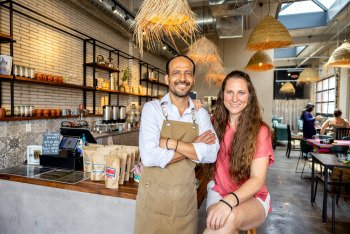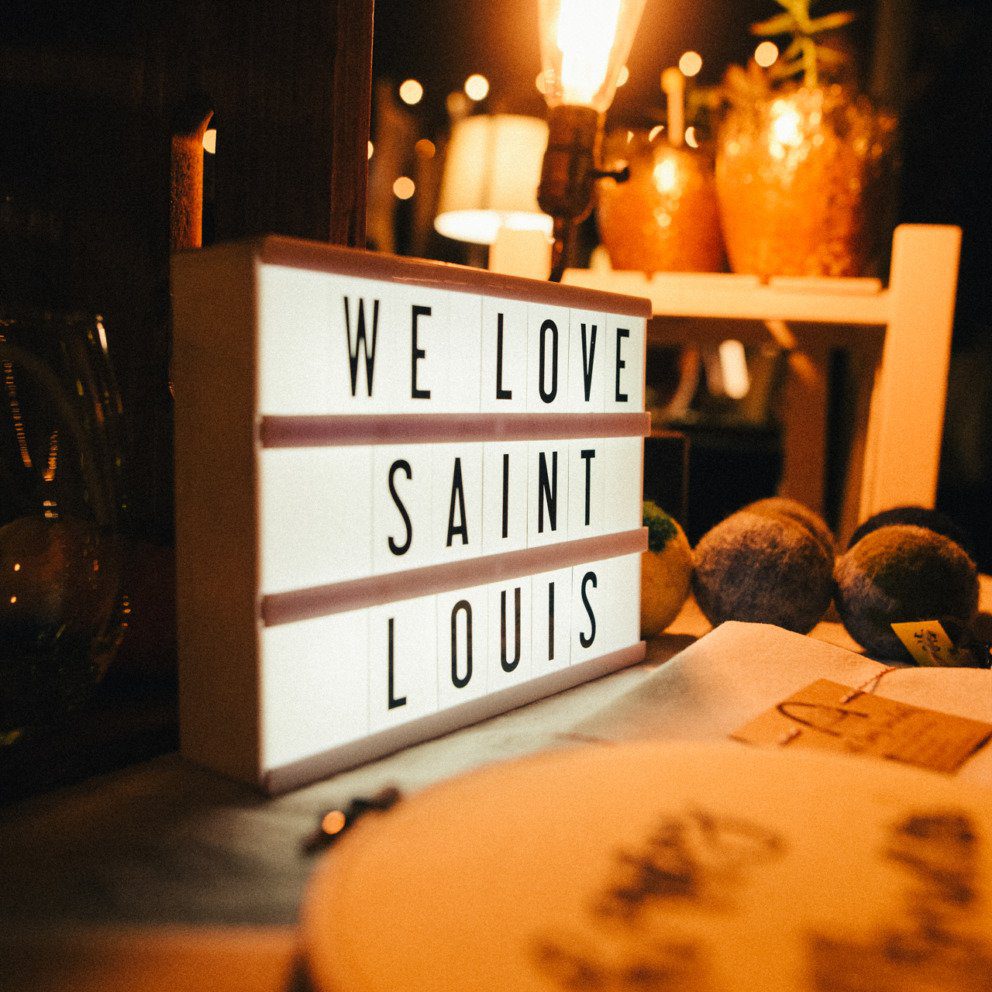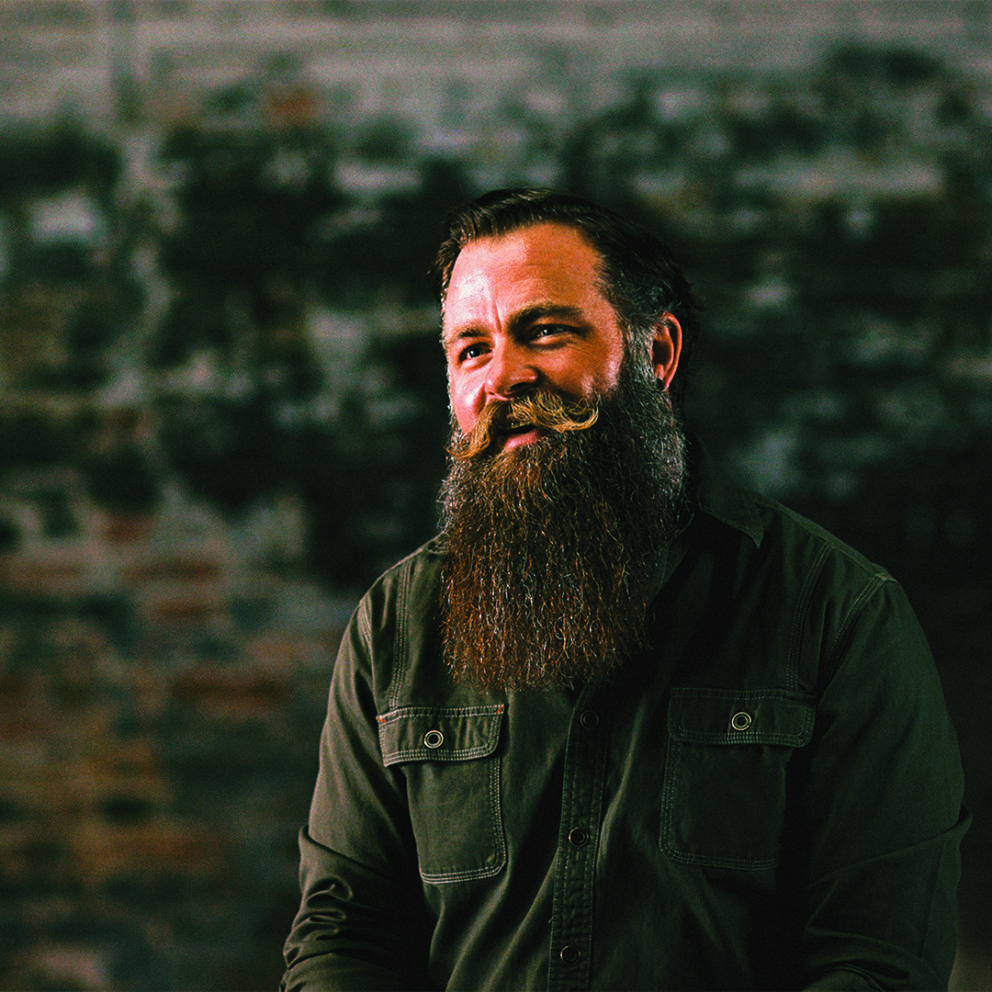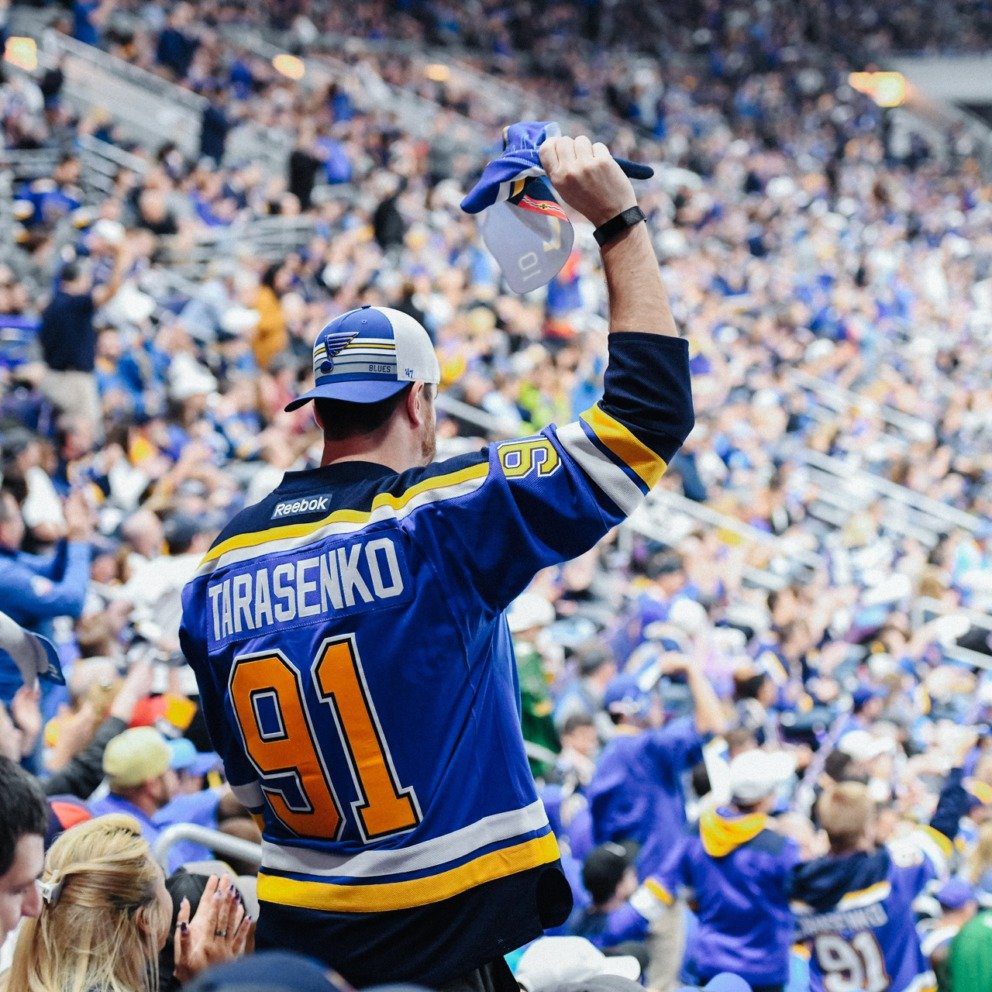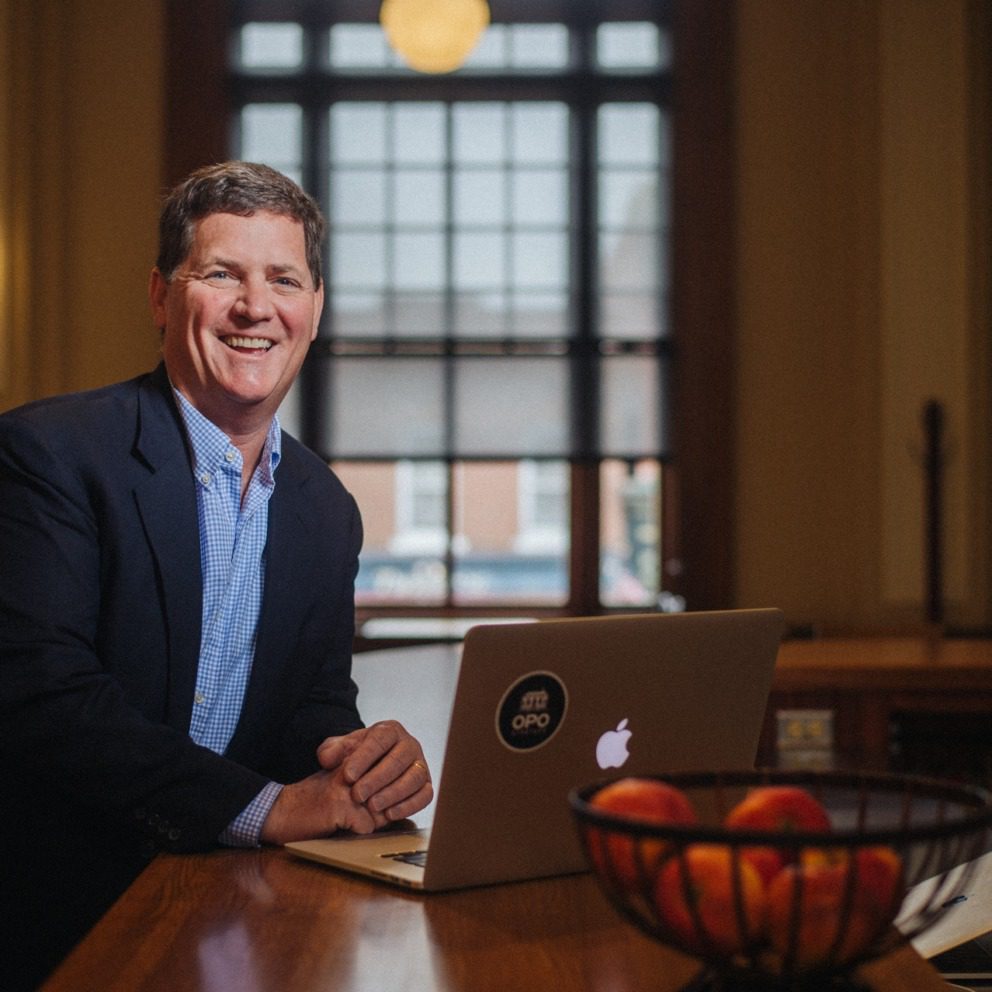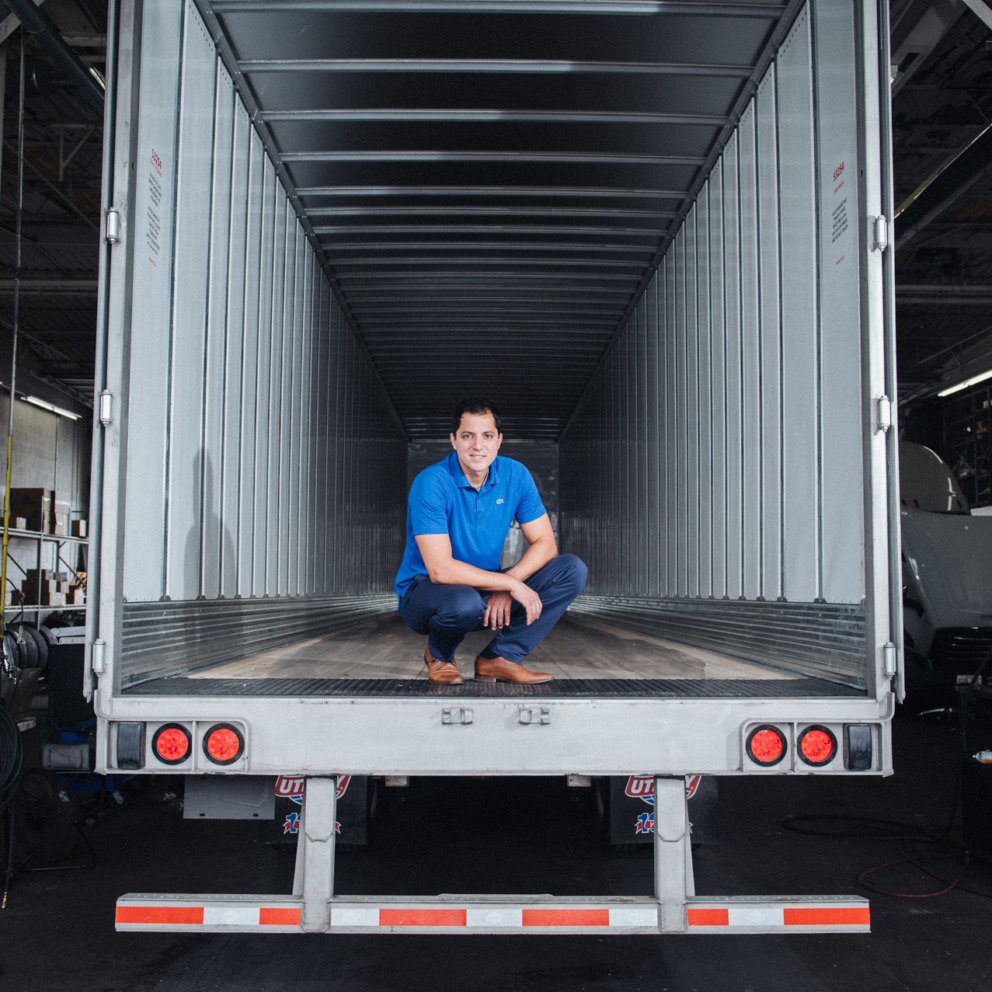Home(Town) Brew
Here in one of the nation's top beer cities, St. Louis brewers are shaping the industry's future.
“Spinderella” knows how to brew a good beer. So does “Cameron Frye.” And they’re both key to St. Louis’s future as one of the top beer cities in the United States.
But these fermentation tanks — named for the “third wheel” personalities in hip-hop group Salt-N-Pepa and 1986 film “Ferris Bueller’s Day Off,” respectively — are nothing without people like Abbey Spencer. As head brewer at Third Wheel Brewing in St. Peters, Spencer leads one of the many craft breweries that’s brought a hoppy renaissance to the St. Louis region over the past decade.
The St. Louis Brewers Heritage Foundation claims that in the late 1860s, more than 40 breweries were producing 200,000 barrels annually in St. Louis. A century later, thanks to war and Prohibition, only Anheuser-Busch remained. But it’s a new era in St. Louis today, as there now are more than 75 breweries within a 100-mile radius of the city, contributing to the Gateway City having what USA Today readers say is one of the best beer scenes in the nation.
“In the last two years, the brewing scene nationally has really boomed. We’re up to, I think, around 8,500 breweries nationally,” says Troika Brodsky, executive director of the St. Louis Brewers Heritage Foundation (commonly known as STL Beer). “That trend has very much been the case in St. Louis, as well. Most of the breweries operating in the region have opened up in the last 10 years.”
Beer has been and always will be vital to St. Louis, and the industry’s recent resurgence mirrors other economic activity. With its low cost of living and abundance of resources, the Gateway City is becoming a hub for bioscience, agriculture, geospatial intelligence, finance and hospitality.
“What’s happening in the city, I’ve never seen it in my lifetime — the amount of cranes that we’re seeing right now, the amount of infrastructure, the amount of new business that’s happening,” marvels Kevin Lemp, the founder, owner and CEO of 4 Hands Brewing Co. in LaSalle Park.
A Culture of Innovation
Just like those other sectors that attract top talent to the region, breweries are innovating on many fronts and will continue to play a large role in St. Louis’s future. Though grounded in the lagers and ales that drinkers crave, the small-batch beer industry’s explosive growth over the past decade has ushered in a new age of experimentation, particularly with distilled beverages. Locally, 4 Hands has branched into the distillery business with its 1220 Artisan Spirits brand, offering gin as well as canned cocktails. Spencer’s Third Wheel Brewing is working on a gluten-free beer to accommodate a number of drinkers’ ingredient sensitivities and preferred diets. And non-alcoholic beer is enjoying a big moment, with Wellbeing Brewing Company becoming the nation’s first brewery to focus solely on non-alcoholic craft beer in 2018.
“One of the things that we’re seeing through beer right now is you have to stay extremely innovative,” Lemp says. “It doesn’t have to be crazy. It just has to be thoughtful and new.”
For many brewers, that spirit of innovation begins at home. Bryan Schubert was a longtime homebrewer, creating and honing his own beer recipes for family and friends. So when he launched Millpond Brewing and Incubator in the fall of 2019, he was determined to give other homebrewers in Millstadt and around the region a chance to shine.
Alongside Millpond’s own professional brews, Schubert’s taps also feature small batches of beer developed by local homebrewers on the premises. It’s a unique setup designed to give rising entrepreneurs a taste of the science and business of the industry so that they might pay it forward should they open their own brewery in the future.
“We wanted our brewery to be a little bit different. Being longtime home brewers and members of a local homebrew club, we wanted our brewery to feature the beer recipes that we’ve always made, but then also a way to give back to the home brewing community,” says Schubert, who grew up in Millstadt and launched his business in a vacated auto shop that he and his family refurbished. “I understand how difficult it is to open up a brewery, and there is a lot of talent in the homebrewing community. I just think that more people should be able to try that beer.”
Spencer also began as a homebrewer after moving to St. Louis and exploring the craft beer scene. She further honed her palate as a bartender and advanced through the Cicerone certification levels. Recruited to brew at Third Wheel, Spencer envisions other local homebrewers fueling the industry in the future.
“I think you’re going to continue to see homebrewers getting into the industry because so many of us already in business are needing more people to come on staff as we grow. Our brewing community is growing so quickly,” Spencer says. “Especially in the St. Louis region, you’re seeing more novice people open up breweries and find creative ways to source the resources that they need to open and be successful at it.”
Education and experience are key to developing St. Louis’s future brewing entrepreneurs and workforce, and new programs like Saint Louis University’s brewing science and operations certificate are putting that power into beer enthusiasts’ hands. A partnership between SLU’s School for Professional Studies and the St. Louis Brewers Heritage Foundation, the program features both online scientific instruction and in-person demonstrations at many of St. Louis’s breweries in a major collaboration among industry innovators.
Troika Brodsky, executive director of the St. Louis Brewers Heritage Foundation and program director of SLU’s brewing science and operations certificate, sees this collaboration as one of the ways St. Louis is asserting itself as a thought leader in the national beer landscape.
“Our program taps into all of these different parts of the industry. It’s not just a deep dive on brewing; it’s a broad dive on all of the different opportunities available in the industry,” Brodsky says. “It’s completely unique in the country to have an entire local brewing scene partner together on something like this.”
“A number of students are homebrewers who are just looking to be better homebrewers. But we also have industry folks who are looking to either go further where they’re working or to make a lateral move, who maybe are doing packaging and they want to learn more about brewing or maybe they’re doing brewing and they want to learn more about the business side,” Brodsky continues.”
Third Wheel’s Spencer is one of the instructors for the SLU brewing science program. “I’m really excited about the SLU program starting in St. Louis because it will offer this opportunity for hands-on and high-quality education for professional brewing,” Spencer says. “It just brings this new level of professionalism [to the industry].”
A Growing Industry for Entrepreneurship
But to move forward, one has to take note of what came before. St. Louis has had an extensive history of innovation in beer for more than 200 years, with Anheuser-Busch becoming the world’s industry giant. The craft boom kicked off here in the 1990s as the Saint Louis Brewery, commonly known as Schlafly, opened its tap room in downtown St. Louis. In the 2010s, a new wave of craft exploded: Civil Life Brewing Company, Perennial Artisan Ales and Urban Chestnut Brewing Company all opened in 2011, with 4 Hands Brewing Company following in 2012.
“It’s in our history. A-B [Anheuser-Busch] was here from the beginning and really, I think, created this industry where people are thirsty,” says Lindsay Sherring, who opened Six Mile Bridge with her husband Ryan in Maryland Heights in 2015. “Everybody loves beer here in St. Louis.”
Dozens of breweries, microbreweries and taprooms have launched throughout the entire St. Louis metro region in the ensuing years, not just brewing beer but also anchoring communities and influencing further economic development.
“A lot of people really don’t understand how many people are a part of this vibrant industry — from contractors and pipefitters, to people who work in automation, to local farmers, to all the businesses around these neighborhoods and all of the nonprofits that these guys support,” Brodsky says. “Local breweries are actually pumping a tremendous amount of money and growth into local economies.”
One growth area of the industry features entrepreneurs who aren’t necessarily brewers themselves. Justin Harris had worked for years in food and beverage retail before founding Saint Louis Hop Shop with his brother Ryan Griffin in 2014. At that time, the new wave of local craft beer was beginning to hit its stride, and Harris fruitlessly looked for a single retail front where he could shop for all those local brews. Sensing an opportunity, Harris and Griffin developed such a bottle shop themselves on Cherokee Street, stocking small-batch beers from St. Louis and beyond and cultivating a community around beer appreciation. He’s confident that St. Louis has the capacity to support even more brewers and entrepreneurs in the future.
“I don’t think we’ve reached the point where we’re at max capacity as far as different entities getting into the craft beer game. I’ve seen newer distributors open up and in a sense dominated what they were doing. And then you’ve got other retailers like the Beer Sauce Shop [in St. Peters], and they have an excellent selection of beer and all these different barbecue sauces and hot sauces and things like that. So there’s definitely room for it.”
Sue McCollum has seen the thirst for St. Louis beer and related products grow over the years in her role as chairman and CEO of Major Brands, one of Missouri’s leading distributors of premium alcoholic and non-alcoholic beverages. Moving many of the local brews that Harris carries at Saint Louis Hop Shop, McCollum frequently partners with breweries throughout the region and beyond. In 2019, Major Brands, Urban Chestnut and 4 Hands collaborated on Beer 4 Good, a limited-edition brew that raised funds for Mission: St. Louis.
“Don’t underestimate the great beer knowledge here,” McCollum says. “The secret to all of this is that if you have an idea, it’s not that there aren’t challenges, but that the obstacles [here] aren’t as great. People love beer in St. Louis. We are a great beer town. We have lanes that are more open here, too, to have a distribution network to support it.”
“This is the Show-Me State,” adds Ryan Sherring of Six Mile Bridge. “This is one of those industries where time in the saddle is just so important. You’ve just got to stick it out and give people the opportunity to try your product, whether it’s beer or food or whatever you’re selling or making.”
And with the local brewing and culinary scenes both rising in national attention, there are plenty of opportunities for collaborations. Many St. Louis-area breweries develop special beers with and for restaurants, venues and events, just as many big-name chefs create entire menus around specific local beers.
“There’s a tremendous overlap in beer, in food and in coffee, and I think all of it kind of hit at the same time,” Lemp says. “It’s fun to collaborate.”
“Everyone who lives in this region should be beyond proud of what these folks are doing. Anything you can do to get out and support them, you should, because it’s not just about the beer they’re making. It’s about the lives they’re touching, the economic impact they’re having, the communities that they are driving and anchoring,” Brodsky says.
“At the end of the day, if you can help your community by drinking a beer, that’s pretty awesome,” he notes.
This story is the first in a series about the St. Louis brewing community. Read the second here.
Join the Story
- Find out why USA Today readers say St. Louis has the nation’s best beer scene.
- Learn why the number of local breweries has quadrupled since 2008.
- See what national publications are saying about St. Louis restaurants.
- Discover how Anheuser-Busch survived Prohibition in St. Louis.
- Find your new favorite craft brewery.


